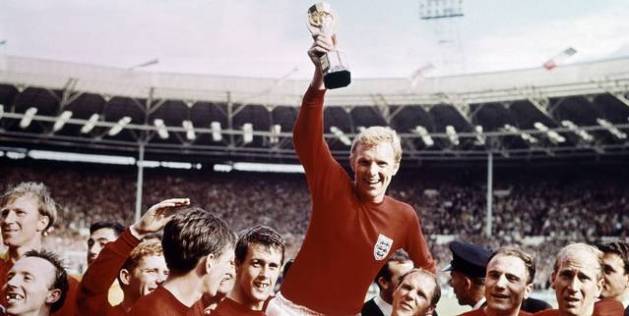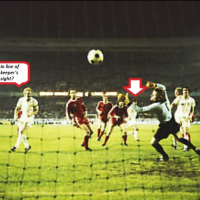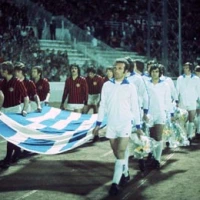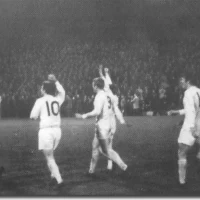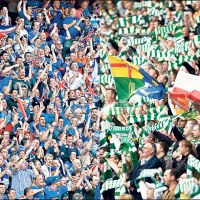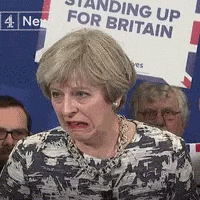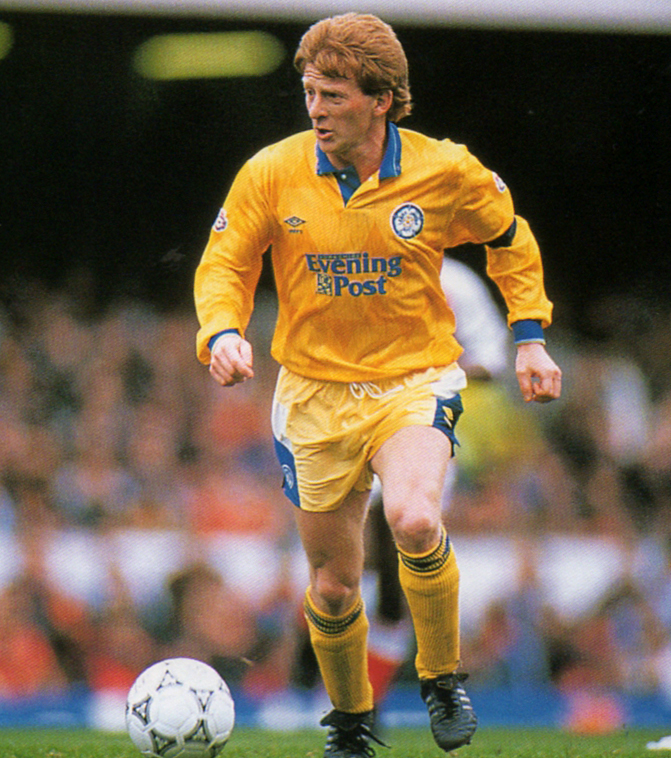Life, Leeds United, the Universe & Everything is celebrating the Carabao Cup exit, at the hands of League Two Colchester United, of Tottenham Hotspur FC – by reprinting this highly popular, and not completely out-of-date, anti-Spuds article.
Thank you.
As a Leeds fan, I’m quite familiar with the whole big club/small club debate – who qualifies as “big”, what are the qualifying criteria? If you currently have a crap team, does that mean you’re suddenly a crap club? And so on and so forth, ad nauseam. It’s not really a question that preoccupies me too much – certainly not to the extent of the Freudian fixation with size that afflicts the plastic followers of a certain Salford-based franchise fallen upon hard times – but it can be annoying if you follow a club like Leeds United, with all the rich tradition of the Revie era and even allowing for the fact that our history before those great days was a bit of a void. But what I’d normally argue is that, look – we’ve been Champions three times in my lifetime, we have a global fanbase and a worldwide notoriety (I won’t call it adoration), a massive web presence which show how many people count the Whites as a big part of their lives – and absolutely no significant local rivals at all. Ergo, we are big. End of.
But what of certain other clubs who are routinely referred to as “big” – not to say massive or even as a “mega-club”? Tottenham Hotspur are a bit of a peculiar animal in this respect. From some points of view, they are certainly a club of significant size. They have a decent stadium in a major city. They deal towards the top end of the transfer market and they’ve been a steady member of the top-flight since the mid-seventies, picking up the odd trinket here and there. But Spurs have two major problems: the first is that they haven’t been Champions since 1961 – a major flaw for a club with any pretensions to size and a place in the forefront of the game. The second problem may be succinctly summed-up as “Arsenal FC”, their fierce local rivals and the team that undeniably thwarts them at every turn.
Arsenal have been stomping all over poor old Spurs for a good while now – and of course, they’ve been and gone and done it time and time again in terms of Champions League qualification, edging the hapless Spuds out repeatedly over the past few seasons. The presence of Arsenal as Tottenham’s neighbours, rivals and perennial bêtes-noires is a major obstacle to their chances of ever being regarded as a mega-club, a status that Arsenal wear casually, as of right. Arsenal, after all, have generally been top dogs in North London, certainly over the past fifty years. They’ve had stability in the managerial chair since the mid-nineties and not that long before Wenger it was George Graham importing large quantities of silverware into the stadium graced by the famous marble halls.
Even the Gooners’ recent potless run, terminated by last May’s FA Cup success, has not detracted from Arsenal’s ability to regard Tottenham from a lofty position of pre-eminence. In the fallow period, the Gooners nevertheless played football of a sumptuous beauty and brilliance, and just as importantly they managed the transition from a famous old home to a spectacular and world-class new one. The financial burden that went with this is steadily being seen off – and yet it’s a process that Spurs have yet to embark upon. Will they negotiate it as well as the Arse have? Highly doubtful. (This bit is really starting to ring true this season).
The sad fact as far as Tottenham are concerned is that this continued subordination to a comparatively humble status will always be a glass ceiling that they will find impossible to break through, certainly if Arsenal now blossom into one of their title-winning incarnations, capable of dominating the domestic scene for years at a stretch. And Spurs need to be up there with the big boys if they are to come anywhere near the kind of status their fans expect and desire.
The youngest of those fans who can remember the last Spurs team to be champions will be coming up for retirement any time now. It was the year that I was born. That’s a hell of an indictment for a so-called “big club” – not really elite form at all. Consider all the other clubs who have any real pretensions to this elevated status in the game. They’ve all been Champions at some point in the last 40 years – even Man U, who couldn’t win the real thing after 1967, have gorged on the post-Murdoch pale imitation. Spurs can’t realistically claim to belong in this exclusive company of Champions – they’re really just a slightly inflated West Ham.
Perennial Champions League qualification is a great advantage for Arsenal, but being on the wrong end of that equation is proving to be a major disaster for Spurs. They lost the jewel in their crown to Real Madrid, and however many millions Gareth Bale brought in, it’s difficult to see where Tottenham, despite their own transfer spree, have a replacement on their books of anything like the same quality, young Master Kane notwithstanding (and he’s not as good as Lewis Cook…) All the best players get routinely gobbled up by the Champions League cartel and Tottenham are in very real danger of becoming the richest club to have their noses pressed up against the window of the House of Quality, yearning to be inside but kept out of the spotlight by their more illustrious neighbours.
That has to be a scary prospect for the proud fans of White Hart Lane, but it’s entirely realistic. Spurs may, with their serial Champions League exclusion and the still-painful loss of their talisman Bale (however ineffective he was against Sam Byram in that FA Cup tie at Elland Road), have blown their chances of ever again being thought of as a genuinely BIG club.
And if that’s the case – then, really… what IS the point of Tottenham Hotspur?



